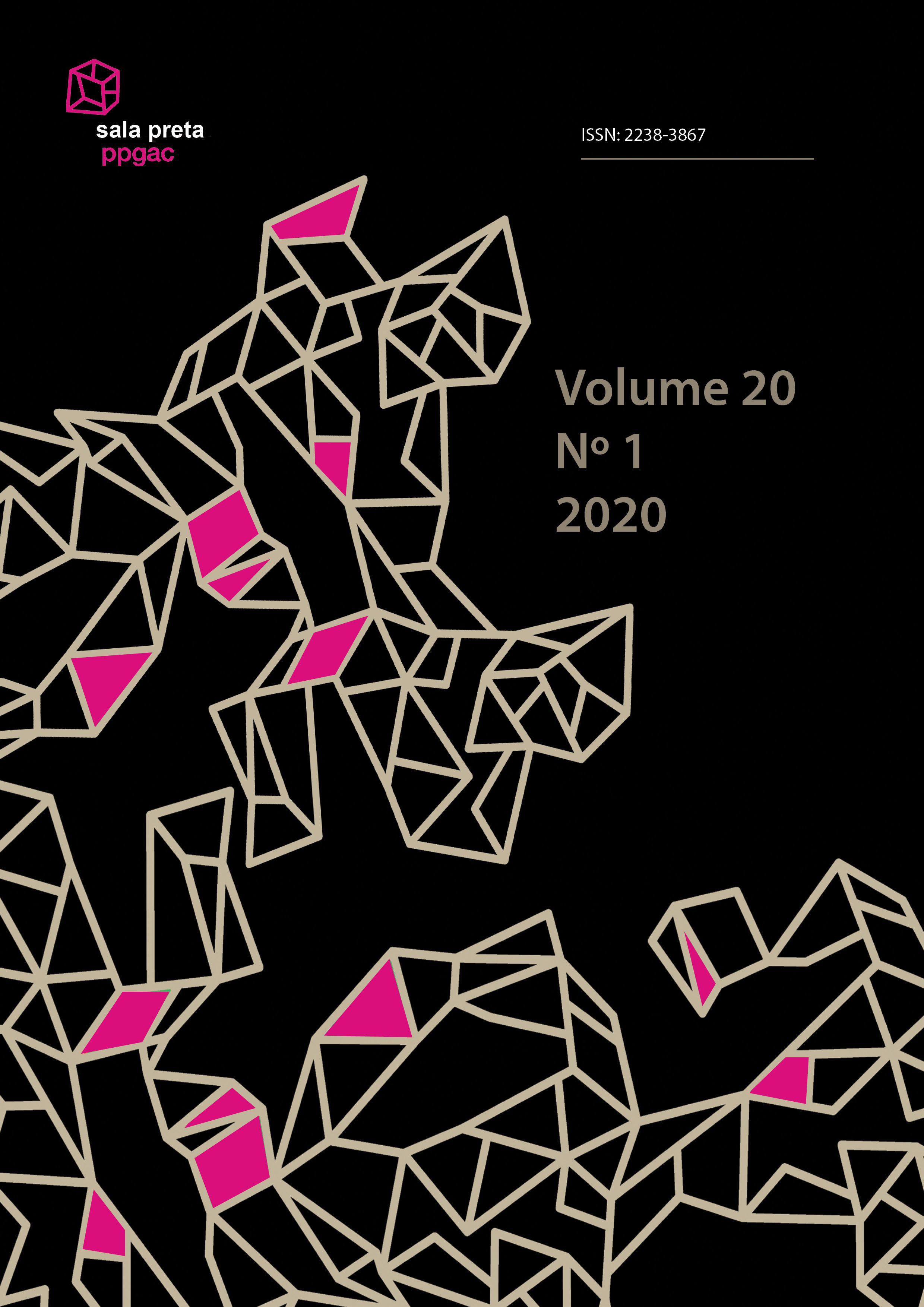Fuzuê
spirits of the past
DOI:
https://doi.org/10.11606/issn.2238-3867.v20i1p123-134Keywords:
Tragedy, Tragic, Political theater, Epic theaterAbstract
This article reflects on the notions of tragedy and tragic based on the ideas of Peter Szondi (2004) in Ensaio sobre o trágico and Raymond Williams (2002) in Tragédia moderna, incorporating the concepts of political theater by Erwin Piscator (1968) and Bertolt Brecht’s epic theater (1999) which serve as theoretical bases of artistic research developed within the Political Theater Studies Group of the Research Group on History, Politics and Scene-NETEP/GPHPC/UFSJ. In terms of theoretical methodology, we reflect on how the dimensions of tragedy and tragic work in the political field of the scene based on the aforementioned models and on analysis of a contemporary experiment. We then utilize this theoretical framework to analyze the scenic experiment Fuzuê, which is the result of research developed between 2015 and 2017, to identify how it implements the historical and tragic dimension of social exploitation.
Downloads
References
ARENA conta Zumbi. Texto: Augusto Boal e Gianfrancesco Guarnieri. Música: Edu Lobo. New York: RCA, 1965. 1 LP.
BENJAMIN, W. Teses sobre o conceito de história. In: LÖWY, M. Walter Benjamin: aviso de incêndio: uma leitura das teses “Sobre o conceito de história”. Tradução de Wanda N. C. Brant, Jeanne M. Gagnebin, Marcos L. Müller. São Paulo: Boitempo, 2005. p. 83-95.
BRECHT, B. A compra do latão. Lisboa: Vega, 1999.
CARVALHO, S. Notas sobre Raymond Williams e o teatro. In: CARVALHO, S. Dramaturgia dialética: escritos de Sérgio de Carvalho. São Paulo, 1 maio 2013. Disponível em: https://bit.ly/3ioZbOI. Acesso em: 7 maio 2020.
LARA, S. H.; PACHECO, G. Memória do Jongo: as gravações históricas de Stanley J. Stein: Vassouras, 1949. Rio de Janeiro: Folha Seca; Campinas: Cecult, 2007.
MARX, K. Manifesto comunista. São Paulo: Boitempo, 2017.
MARX, K. O 18 Brumário de Luís Bonaparte. São Paulo: Boitempo, 2011.
MOREIRA, C. M. G.; NOSELLA, B. L. D. Práticas laboratoriais e a história na cena: tecnologia e iluminação na cena épica de Piscator. Urdimento, Florianópolis, v. 1, n. 37, p. 35-53, 2020. Disponível em: https://bit.ly/2NSFyQQ. Acesso em: 7 maio 2020. DOI: 10.5965/1414573101372020035.
PISCATOR, E. Teatro político. Rio de Janeiro: Civilização Brasileira, 1968.
SZONDI, P. Ensaio sobre o trágico. Rio de Janeiro: Zahar, 2004.
WILLIAMS, R. Tragédia moderna. São Paulo: Cosac Naify, 2002.
Downloads
Published
Issue
Section
License
Os leitores são livres para compartilhar, copiar e redistribuir os textos publicados na Sala Preta, sem fins comerciais e em qualquer suporte ou formato, desde que sejam dados os créditos apropriados ao(s) autor(es) e à Revista. Podem também adaptar, remixar, transformar e criar a partir deste material, desde que distribuam o material derivado sob a mesma licença do original – e mantenham a menção explícita ao(s) autores e à Revista Sala Preta.
Ao submeter um artigo à Sala Preta e tê-lo aprovado para publicação os autores concordam com os termos da Licença Creative Commons Atribuição-NãoComercial-CompartilhaIgual 4.0 Internacional.


